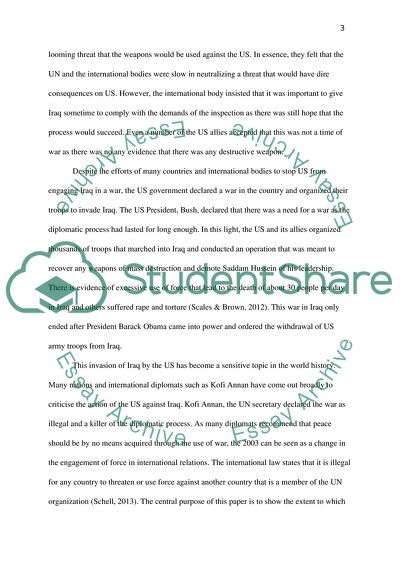Cite this document
(“To what extent did the invasion of Iraq in March 2003 signify a change Essay”, n.d.)
To what extent did the invasion of Iraq in March 2003 signify a change Essay. Retrieved from https://studentshare.org/history/1625785-to-what-extent-did-the-invasion-of-iraq-in-march-2003-signify-a-change-in-the-way-that-force-is-used-in-international-relations
To what extent did the invasion of Iraq in March 2003 signify a change Essay. Retrieved from https://studentshare.org/history/1625785-to-what-extent-did-the-invasion-of-iraq-in-march-2003-signify-a-change-in-the-way-that-force-is-used-in-international-relations
(To What Extent Did the Invasion of Iraq in March 2003 Signify a Change Essay)
To What Extent Did the Invasion of Iraq in March 2003 Signify a Change Essay. https://studentshare.org/history/1625785-to-what-extent-did-the-invasion-of-iraq-in-march-2003-signify-a-change-in-the-way-that-force-is-used-in-international-relations.
To What Extent Did the Invasion of Iraq in March 2003 Signify a Change Essay. https://studentshare.org/history/1625785-to-what-extent-did-the-invasion-of-iraq-in-march-2003-signify-a-change-in-the-way-that-force-is-used-in-international-relations.
“To What Extent Did the Invasion of Iraq in March 2003 Signify a Change Essay”, n.d. https://studentshare.org/history/1625785-to-what-extent-did-the-invasion-of-iraq-in-march-2003-signify-a-change-in-the-way-that-force-is-used-in-international-relations.


